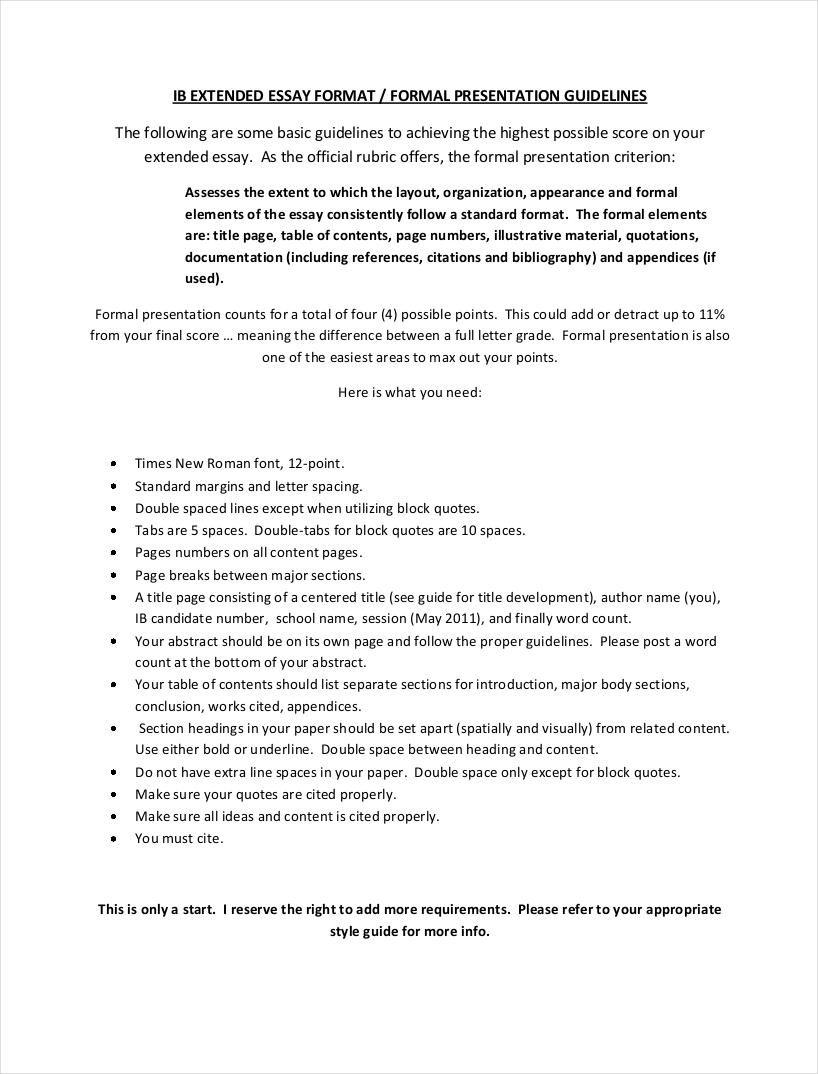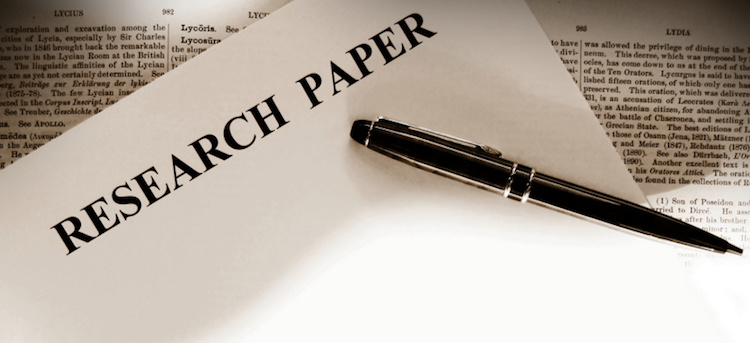
· A formal essay is a type of writing that includes not only essays, but letters, reports, and job applications written in a formal style with the usage of a strong vocabulary. In a formal essay, all rules of punctuation and grammar are observed. Essays of this style are specific, focused on facts, and include a standard, template language Don’t you dare in a formal paper. Here’s a list my favorite teacher gave me back in high school. It’s compiled of things that should never be in a formal composition. Don’t you dare Use a contraction (don’t, couldn’t, etc.) Use “things” or “stuff” be specific; Use “nice” or “some” – too vague, over used · Formal voice in writing is generally used for scholarly and academic reports, essays, article and books, as well as in technical writing, legal documents, research papers, lectures, and
Formal Paper (New Horizons) - Animal Crossing Wiki - Nookipedia
Last Updated: November 13, References Approved. This article was co-authored by Jake Adams. With over 11 years of professional tutoring experience, Jake is also the CEO of Simplifi EDU, an online tutoring service aimed at providing clients with access to a network of excellent Formal paper tutors. Jake holds a BA in International Business and Marketing from Pepperdine University.
There are 44 references cited in this article, formal paper, which can be found at the bottom of the page, formal paper. wikiHow marks an article as reader-approved once it receives enough positive feedback. In this case, several readers have written to tell us that this article was helpful formal paper them, formal paper, earning it our reader-approved status.
This article has been viewedformal paper. The term "formal essay" probably makes many people think of high school or college writing classes, but formal essays have many practical uses outside the classroom.
A formal essay may be a requirement in certain job applications and professional reports and correspondences. Learning how to write a strong formal essay can help you excel in your academic career and your professional career.
Your thesis statement describes the content of your essay, formal paper. Formal paper should clearly and concisely state the claim or opinion you will defend in your essay. Read on for another quiz question. Not quite! Your thesis should be disputable, formal paper. It should not be something that most people would agree with because you will be using your thesis to formal paper a strong argument. Choose another formal paper Not exactly!
You should write about what you know. It may help to brainstorm some broad topics and then narrow them down into a few that may be easier to explore. Click on another answer to find the right formal paper The thesis statement should be included in the first paragraph of your essay. It should be one sentence long and should typically be the last formal paper of the paragraph.
Try another answer The final paragraph of a formal essay is the conclusion, but it should not use words and phrases such as, "in conclusion" or "to summarize, formal paper.
You should include any necessary background or expository information in your introduction, which is the first paragraph of your essay. This could a description of a theory you're using to prove your thesis statement or a brief history of the chosen topic. The conclusion does not introduce any additional information or examples, formal paper.
It summarizes the points you've made in the body of your essay and repeats your thesis statement. Some conclusions may look ahead to the future, offering a prediction or implication for the coming years based on the assumption that the thesis has been proven. Check your assignment description to see if this is expected in your essay. It is true that you should only use a transition if it is necessary. If the sentences before and after the transition are on the same subject, you probably do not need it.
Still, there are other ways to write a strong transition. Try again You should definitely use a phrase such as "On the other hand" or "In contrast" when creating a transition.
These familiar phrases let the reader know the following sentence will shift its focus. But keep in mind that there are other ways to write a strong transition.
It is true that reading the transition out loud formal paper help you determine if it fits the context of the sentence. If it sounds awkward or is something you would not say in normal conversation, you should revise or eliminate the transition.
However, there are other ways to write a strong transition, as well. You should absolutely keep your transitions brief. Try transition words such as "However" or "Additionally" to keep the emphasis on your content. But remember that there are other ways to write a strong transition, too.
To write a strong transition, formal paper, make sure it is neessary, use a transtional phrase, read the transition out loud after you write it, and keep it brief. Remember that transitions connect your thoughts so your essay reads smoothly. Associated Press, or AP, style is most often used in journalism, such formal paper newspapers and magazines.
This formal paper prefers single-spacing and never uses italics. Instead, it uses quotation marks for titles of publications. That's right! American Psychological Association, or APA, style is most often used in the social sciences, such as psychology, sociology, formal paper, and anthropology. This style uses a serif typeface throughout the essay, formal paper, double-spacing, and text aligned to the left-hand margin. Modern Language Association, or MLA, style is most often used in the humanities, such as religion, philosophy, formal paper, and language arts.
This style uses a point legible font, 1-inch margins on all sides and a separate "Works Cited" page, formal paper. Chicago style is most often used in academic and historical journals. To write a formal essay, first compose an introductory paragraph that gives background information and includes your thesis statement. Then, formal paper, write body paragraphs so that each one addresses a point in support of that thesis.
For each body paragraph, try to formal paper a clear topic sentence that articulates the point of the paragraph, and provide supporting evidence for the point and an explanation of how it backs up your thesis, formal paper.
For information from our English Language reviewer on choosing a topic for your formal essay, read formal paper Did this summary help you? Yes No. Log in Social login does not work in incognito and private browsers. Please log in with your username or email to continue.
wikiHow Account. No account yet? Create an account. Community Dashboard Write an Article Request a New Article More Ideas Edit this Article. Courses New Tech Help New Expert Videos About wikiHow Pro Upgrade Sign In. Home Random Browse Articles Courses New About wikiHow Easy Ways to Help Approve Questions Fix Spelling Quiz Formal paper More Things to Try We use cookies to make wikiHow great.
By using our site, you agree to our cookie policy. Cookie Settings. wikiHow is where trusted research and expert knowledge come together. Learn why people trust wikiHow, formal paper. Categories Education and Communications College University and Postgraduate Academic Writing Essays How to Write a Formal Formal paper. Download Article Explore this Article parts. Essay Template and Sample Essay. Tips and Warnings.
Related Articles. Article Summary. Co-authored by Jake Adams Last Updated: November 13, References Approved, formal paper. Essay Template and Sample Essay Essay Template. Support wikiHow and unlock all samples. Part 1 of Brainstorm possible subjects. Brainstorming is one of the most common methods of topic formation. It allows you to explore multiple possible topics without committing to any of them until you decide what will work best for you.
Set a timer. Choose a time span that will allow you to cover a lot of ground, but not so large a time span that you find yourself feeling lost and aimless, formal paper. Five to ten minutes formal paper generally a good starting point. Try to come up with as many ideas as you can, formal paper, and jot them down as quickly as possible.
You want to have a large list to work with, formal paper. Look for any patterns or recurring themes in the subjects that you've written down. Choose a topic. Your topic should be a subject that is interesting to you, since you want to be able to write about it at length. If you are writing an essay for school, be sure that your topic fits the assignment you've been given.
If you had multiple items in your brainstorming session that are all related to a central issue or theme, it's a good sign that you will be able to write a lot about that issue.
APA Formatting and Module Four Formal Paper Part One
, time: 12:35How to Write a Formal Essay (with Pictures) - wikiHow

A formal essay is commonly associated with academic essay examples and other educational writing activities. However, the usage of a formal essay is not limited to that as it can be used in professional researchers, business transactions, and other corporate undertakings. ,+ Designs, Documents Templates in PDF, Word, Excel, PSD, Google Docs, PowerPoint, InDesign, Apple Pages, Google · Formal voice in writing is generally used for scholarly and academic reports, essays, article and books, as well as in technical writing, legal documents, research papers, lectures, and Formal essay is one of the most complex types of academic papers. Within a small volume of such a paper, you have to describe a broad topic using arguments, proofs, and other reliable materials. It should not become regular storytelling as well. And to find this “happy medium” is

No comments:
Post a Comment